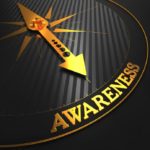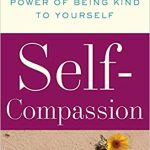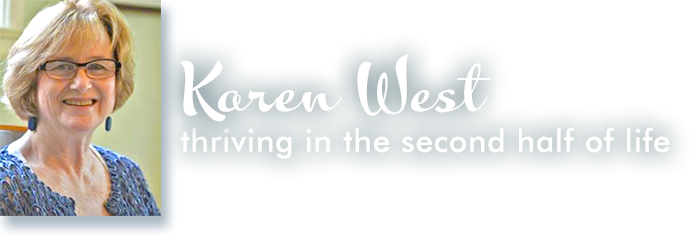In my last three blog entries, I wrote about the first two components of self-compassion—self-kindness and common humanity. In this entry, I’m going to write about the third component—mindfulness. But before I begin, I want to talk about something you may have been thinking about when you read my last three blog entries on self-compassion.
You may have been thinking, but “Don’t we need judgment to figure out right from wrong?” I love what Kristin Neff says in her book Self-Compassion: Stop Beating Yourself Up and Leave Insecurity Behind: “It’s useful here to draw a distinction between judgment and discriminating wisdom. Discriminating wisdom recognizes when things are harmful or unjust, but also recognizes the causes and conditions that lead to situations of harm or injustice in the first place. When wrongdoers are treated with compassion rather than harsh condemnation, cycles of conflict and suffering can be broken…Discriminating wisdom recognizes complexity and ambiguity.” (73–74)
 When Neff says the third component of self-compassion is “mindfulness,” it makes sense, but the concept of mindfulness goes way beyond just being mindful when you’re hurting. If you live your life being as mindful as you can, your life will be much more fulfilling than if you don’t. When I looked online for a definition, I found one that I really like. It said that mindfulness is “a mental state achieved by focusing one’s awareness on the present moment, while calmly acknowledging and accepting one’s feelings, thoughts, and bodily sensations.” Many people were introduced to the concept of mindfulness when they took Jon Kabat-Zinn’s Mindfulness-Based Stress Reduction (MBSR) program, which he introduced in his book Full Catastrophe Living in 1990. I took the class from Michael O’Neal in the 1990’s, and I have been taking Buddhism classes from Michael off and on since then. He now has his own building—Compassionate Ocean Zen Center in Minneapolis. I really recommend that you take the class from him or his wife Joen.
When Neff says the third component of self-compassion is “mindfulness,” it makes sense, but the concept of mindfulness goes way beyond just being mindful when you’re hurting. If you live your life being as mindful as you can, your life will be much more fulfilling than if you don’t. When I looked online for a definition, I found one that I really like. It said that mindfulness is “a mental state achieved by focusing one’s awareness on the present moment, while calmly acknowledging and accepting one’s feelings, thoughts, and bodily sensations.” Many people were introduced to the concept of mindfulness when they took Jon Kabat-Zinn’s Mindfulness-Based Stress Reduction (MBSR) program, which he introduced in his book Full Catastrophe Living in 1990. I took the class from Michael O’Neal in the 1990’s, and I have been taking Buddhism classes from Michael off and on since then. He now has his own building—Compassionate Ocean Zen Center in Minneapolis. I really recommend that you take the class from him or his wife Joen.
So, why is mindfulness so important? Neff writes, “The idea is that we need to see things as they are, no more, no less, in order to respond to our current situation in the most compassionate-and therefore effective—manner.” (80) If we’re not being mindful when something goes wrong, it’s all too easy for us to overreact and get lost in unhelpful thoughts and emotions. But Neff tells us, “Mindfulness allows us to stop resisting reality because it holds all experience in nonjudgmental awareness. It allows us to accept the fact that something unpleasant is occurring, even if we don’t like it. By mindfully relating to our difficult emotions, they have a chance to take their natural course, arising and eventually passing away. If we can wait out the storm with relative equanimity, we won’t make things any worse than they already are. Pain is unavoidable; suffering is optional.” (94) “Equanimity” is my favorite word.
 Neff also suggests that when something goes wrong, we shouldn’t immediately go into “problem-solving mode.” (81) Instead we need to slow down and recognize how hard it is for us. Instead of spending all our time and energy trying to fix what’s wrong, we need to take the time “to refresh ourselves internally.” (81)
Neff also suggests that when something goes wrong, we shouldn’t immediately go into “problem-solving mode.” (81) Instead we need to slow down and recognize how hard it is for us. Instead of spending all our time and energy trying to fix what’s wrong, we need to take the time “to refresh ourselves internally.” (81)
Finally, she says, “Our emotional suffering is caused by our desire for things to be other than they are.” But in order for us to accept things as they are, we have to be mindful enough to see them as they are.
To conclude the self-compassion section of my blog, I would like to quote Kristin Neff one more time. She says, “From the stable platform of self-compassion, you’ll be able to wisely guide your next steps in a manner that leads to greater health, happiness, and well-being. Instead of letting your difficult emotions carry you away, you can carry your difficult emotions to a better place. You can hold them, accept them, and be compassionate toward yourself when you feel them. And the amazing thing is that you don’t have to rely on anyone or anything ese to give yourself this gift. Nor do you have to wait until circumstances are exactly right. It’s precisely when you’ve fallen on hard times and things are looking their worst that self-compassion is most available.” (103)

